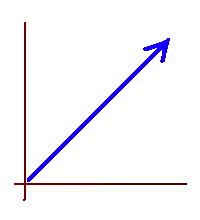Practice makes perfect
Most students need several exposures to a procedure before being able to perform it correctly. Successful performance of mathematical procedures has several ingredients: understanding the concept is fundamental but is not enough. Memory plays an important part as well, you have to put in the effort required to commit the formulas to memory.
Then there are the concrete examples that give the abstract principles a solid meaning. The most important part is application to complex examples, how to actually use the formulas, how to recognize you have an expression in front of you that is calling for that particular formula. More often than not, each of these performance components needs the student to be exposed multiple times to the subject matter in order for the skill to be correctly installed into the student's mind. In these regard our brain differs vastly from computers. A typical computer program gets completely installed in one installation session. The programs our brain uses to solve mathematical problems generally need multiple installation sessions to become functional. Sometimes there seems to be a big, tall skepticism barrier guarding the mind of the student against any mathematical learning. Sometimes, with some students, I end up under the impression that I have to show them how the formulas work and what the connections are from every conceivable angle before they finally make the decision to believe in the process, to see it for themselves, and to use the tools. In these cases I feel they make every mistake they can possibly make, at every chance they get. I do not attribute this behavior to lack of intelligence but to a strong skepticism, some sort of lack of faith, and a need for attention. That is another reason repetition is so important, not only because it is required for most students to understand a procedure well, but also because some students need the teacher to have multiple opportunities to figure out a way to finally explain the subject to that particular student well enough that finally he or she makes the decision to trust the evidence that has been presented to him or her and adopts the procedure.
Practice makes perfect, for the student as well as for the teacher.
The gap between a Helpful Assistant and a Senior Engineer
-
Let’s suppose you asked an AI coding agent to “implement a CLI calculator”.
Imagine if, instead of only writing short Python script, it also started
buil...
20 hours ago





No comments:
Post a Comment